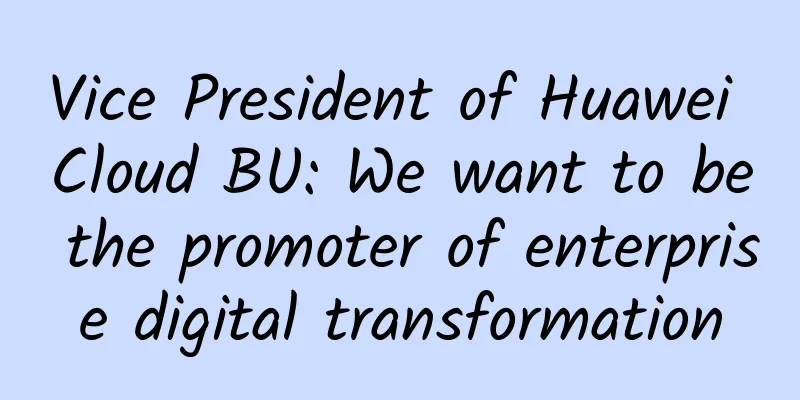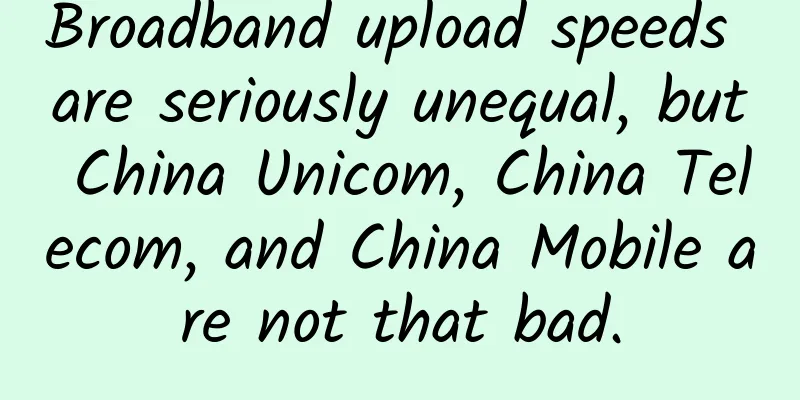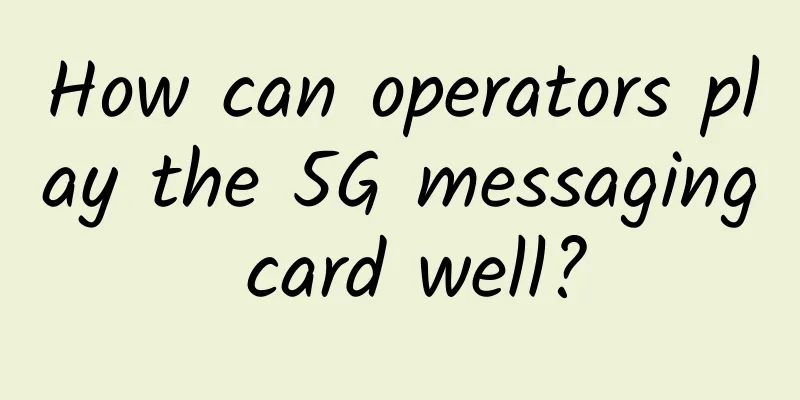Vice President of Huawei Cloud BU: We want to be the promoter of enterprise digital transformation

|
[51CTO.com original article] When it comes to public cloud, you may immediately think of Alibaba Cloud or AWS - or in other words, Huawei Cloud is not ranked high in the minds of cloud providers. However, Huawei does not intend to compete directly with these cloud providers, but rather emphasizes its own advantages. On July 11, Huawei Cloud held a large-scale press conference in Beijing with the theme "If the Future Can Be Foreseeable". Zheng Dianhai, vice president of Huawei Cloud BU, said that Huawei Cloud's goal is to "be a promoter and collaborator of enterprise digital transformation." Zheng Dianhai's speech today is roughly divided into three parts. The first is the basic situation of Huawei Cloud, especially emphasizing the advantages of a global network and the consistent idea of building scenario-based solutions with ecological partners under the concept of "cloud, pipe, and terminal"; the second is to introduce the basic concept of Huawei Cloud's enterprise-level business, which is of course the focus and also the focus of Lao Yang; the last is two introductions, namely the manufacturing cloud solution and the software development cloud solution. What advantages and features does Huawei Cloud have in enterprise applications? Zheng Dianhai mentioned three aspects: First of all, trustworthiness is more than just security. Trustworthiness includes Huawei's experience in cooperating with large enterprises over the past 20 years (172 of the world's top 500 and 42 of the world's top 100), data privacy and sovereignty, and security technology. Zheng Dianhai emphasized that customers' data should not be monetized, and that customers' data sovereignty should be respected. Huawei also established a complete security system at the technical level to ensure that users will be fully and comprehensively protected in terms of data security, legal compliance, and privacy protection. The second is openness. Lao Yang understands that openness here actually refers to flexible solutions based on multiple cloud platform options for customers. Zheng Dianhai said that open architecture is the basis for enterprises to smoothly migrate to the cloud; Huawei attaches importance to both the public cloud and private cloud markets, and hopes to use an OpenStack platform to build an overall platform that allows users to smoothly move between public and private clouds. In this case, enterprises can apply cloud solutions according to their different needs and different scenarios. The last thing that surprised Lao Yang was the offline service. Zheng Dianhai said that Huawei's global support team can provide customers with "Glocal" offline services, or become "sun never sets" services - in the Huawei service area displayed on the big screen, Huawei's offline service range has included 170 countries and regions. Huawei's so-called offline services are comprehensive, including three major systems, namely consulting services (including consulting, evaluation, and analysis), implementation services (including planning, construction, and deployment), and O&M services (including management, monitoring, and optimization). Trustworthiness and openness do not surprise Lao Yang, or even to say that they are clichés is not an exaggeration; but why does Huawei Cloud emphasize offline services? After careful consideration, Lao Yang believes that this is a very differentiated service provided by Huawei Cloud based on its own characteristics and the needs of enterprises (it should be emphasized here that the focus is on medium-sized and larger traditional industry enterprises, not webmasters, small and micro enterprises, or operators). Under the current situation, it is not a big problem for enterprises to go to the cloud and use the cloud, and there are many service providers; but in the deep waters of cloud applications, enterprises actually have many pain points, and each industry is very different. Enterprises need all-round services. Huawei's more than ten years of enterprise service experience, which was often regarded as a burden for Internet transformation, has become a huge advantage for Huawei over many Internet companies in this situation. Therefore, Huawei Cloud's emphasis on offline services should be a good move. At the end of his speech, Zheng Dianhai made it clear: Many people ask what Huawei Cloud wants to do? Our answer is actually very clear. Huawei Cloud wants to be a promoter and partner of enterprise digital transformation! Huawei Cloud will open up its own capabilities and platforms to connect enterprises now and in the future, and become the best partner of enterprises! [51CTO original article, please indicate the original author and source as 51CTO.com when reprinting on partner sites] |
<<: How will HTTP and DNS protocols evolve in the 5G era?
>>: Maipu attended the 3rd China Military-Civilian Integration Technology and Equipment Expo
Recommend
5G helps: Five future development trends of smart transportation
According to relevant research reports, the globa...
Smart trash cans offer hidden 5G infrastructure
Alpha Wireless partners with smart waste company ...
Learn how to start your networking career
The networking industry is changing rapidly, and ...
Huawei Mate X is a new species. You think foldable phones are simple!
In the mobile phone industry in 2019, foldable sc...
Now, how can enterprises fully reap the benefits of private 5G networks?
Over the next decade, 5G is expected to become on...
8 trends in infrastructure development in 2018
Cloud computing is gradually gaining favor among ...
NIST aims to make frequency sharing more efficient for wireless networks
Machine learning solutions will help different ra...
In 2017, the wireless and mobile sectors welcomed multiple favorable factors and the pace of industrial development accelerated.
[[180647]] The bell of 2017 has rung. Facing the ...
Working together: Two ways Wi-Fi and 5G can coexist
WBA: Wi-Fi and 5G coexist at the physical layer o...
5G universal access requires reasonable development and support from multiple parties
[[352016]] Recently, the three major domestic ope...
What is the process of DNS domain name resolution?
Interviewer: Please tell me what the process of D...
What are the remaining obstacles to China's 5G?
With the news that Nokia and Ericsson won the bid...
Wi-Fi 6 Development Status and Future Application Trends
Connections are given more profound value in the ...
Spring is coming, the cancellation of data roaming charges? Beware of scams
Mr. Dongguo and the wolf, Lu Dongbin and the dog,...
Ransomware cannot be prevented? "Dynamic security defense" + "key data backup"
Recently, a well-known domestic financial softwar...









